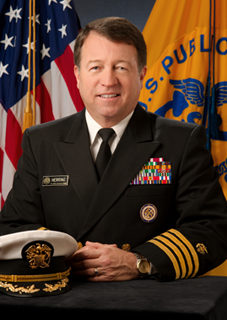VCEHP101: Vector-Borne Diseases of Public Health Importance
Course Description:
VCEHP101: Vector-Borne Diseases of Public Health Importance is first in a eleven-course learning series.
The Vector-Borne Diseases of Public Health Importance course provides a comprehensive overview of vectors, the diseases they transmit and their distribution. This course provides the basic knowledge needed by the Environmental Public Health Workforce to help them protect the communities they serve from Vector-borne Diseases of environmental origin, and educate the public and the partners with whom they work, particularly in the area of vector control.
Target Audience
Public Health, First Responders, Emergency Response and Preparedness Professionals and Healthcare Practitioners
Learning Objectives
- Identify the most important disease causing vectors in the US
- Classify the basics of vector biology
- Recognize how vectors transmit disease
- Differentiate the diseases each vector can transmit
- Explain basic vector borne disease pathology
Instructor:

CAPT Michael E. Herring, REHS, MPH
CAPT Michael E. Herring, REHS, MPH received a Bachelor of Science degree in Environmental Health from East Carolina University in 1980 and a Master of Public Health degree from the University of Texas Health Science Center at Houston in 1993. He began his career in 1980 as an environmental health specialist with the Durham County Health Department in North Carolina. He was promoted to Environmental Health Supervisor in 1983 and served in that role through 1988 when he accepted a commission with the United States Public Health Service.
During his Public Health Service career, Captain Herring has been assigned to various positions throughout the nation with the Indian Health Service, the U.S. Coast Guard, and the Centers for Disease Control and Prevention (CDC). Captain Herring currently serves as a Senior Environmental Health Scientist and the Training and Technical Assistance Team Leader for the Environmental Health Services Branch of the CDC National Center for Environmental Health in Atlanta, Georgia. His duties include leading efforts to enhance the knowledge, skills, and capabilities of the nation's environmental public health workforce. Captain Herring is a subject matter expert on integrated pest management (IPM) and has worked extensively throughout the U.S. and internationally to reduce vector-borne disease threats by educating health professionals and the public on the science and principles of IPM.
Captain Herring is a Registered Environmental Health Specialist with over 35 years of professional experience. He has served in numerous leadership roles for various public health and environmental health organizations, committees, and work groups at the national, regional, state, and local levels. Over the course of his career, Captain Herring been has a featured speaker at over 50 national and international conferences and symposiums.
Captain Herring is the recipient of over 60 awards from the President of the United States, the Uniformed Services of the United States, multiple federal agencies, and national public health and environmental health organizations. CAPT Herring was presented with the 2013 Walter S. Mangold Award, the highest honor bestowed by the National Environmental Health Association for achievements in the field of environmental health.
Available Credit
- 1.00 Participation/CETulane Professional and Continuing Education (PaCE) awards 1.00 hour(s) of credit for completing VCEHP101: Vector-Borne Diseases of Public Health Importance
Price
Required Hardware/software
System Settings
This course is designed to work most effectively if your computer and internet connection meet certain minimal requirements. This course can be accessed using a Windows 10 PC or a Mac with High Sierra1, Mojave, or Catalina. Pop-up blockers should be disabled when viewing the course. Internet Explorer 11 (for Windows 10), or the current version of Google Chrome, Mozilla Firefox, or Apple Safari (for Windows 10 and or Mac) is required. Many of our courses require Java and JavaScript enabled.
Links to External Websites
Links to websites outside this course will open in a new window or tab. Some browsers may minimize the course window. If this occurs, maximize the course window to return to the course.
Adobe Acrobat Reader (for desktops and laptops)
Adobe Acrobat Reader is required to access some documents in this course. If you need to download a free copy of Acrobat Reader, click here.
Internet Connection Speed
A minimum download speed of 1.5 Mbps is recommended for an optimal experience, which is commonly the speed associated with a basic DSL or a cellular/satellite connection. A faster connection, such as cable or fiber service, with further enhance your online experience. A Wi-Fi connection is generally acceptable, but it is dependent upon one of the two services mentioned above. You can check your internet connection speed at http://www.speedtest.net/.

 Facebook
Facebook X
X LinkedIn
LinkedIn Forward
Forward